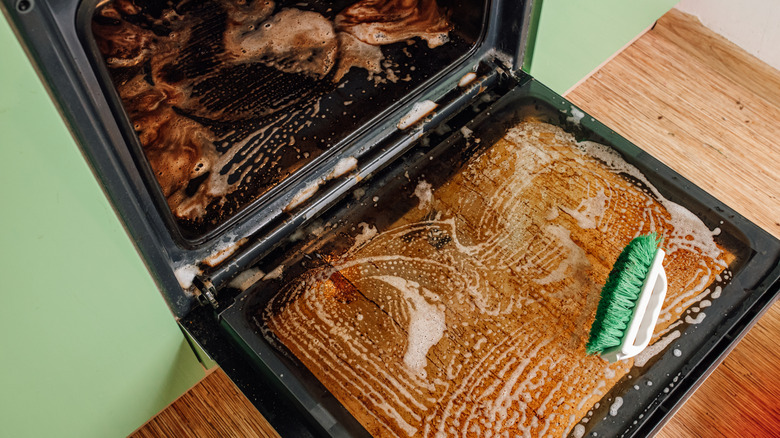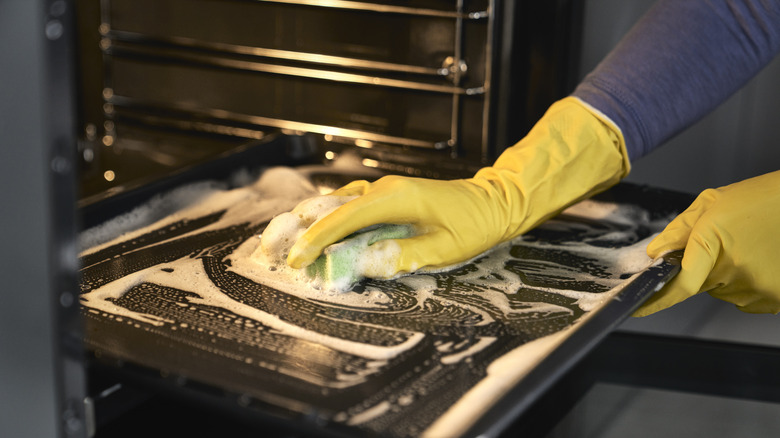Should You Use Your Oven's Self-Cleaning Feature?
When I first lived alone, I thought I had everything figured out. Until, one day, I was watching TV, waiting for the oven to preheat, when I heard an ear-splitting crash. I took my three long steps to the kitchen where I discovered the oven door had exploded. Glass was scattered everywhere, and the floor looked like it had been bedazzled with dollar-store vase decor. My landlord wasn't thrilled, and I had no oven for a month. When the repair person finally arrived, their first question was, "Were you self-cleaning?"
In this case, I wasn't, but I wondered if there was a reason they'd jumped straight to this conclusion. Had the previous tenants' overuse of the self-clean feature blown up my range? Are self-cleaning ovens a hidden kitchen menace?
While they may be the bogey-man according to some oven repair experts and internet horror stories, high-heat self-cleaning features are generally safe to use. According to consumer report research, you're far more likely to run into ignition problems with your oven than you are to experience faults with the self-cleaning system. What's more, self-cleaning features are extremely common across a wide variety of oven makes, suggesting that companies trust them and that many people use them regularly without dire consequences.
So, what's not to love? Are there any downsides at all to an oven that cleans itself? While there are some potential drawbacks to keep in mind, self-cleaning your oven from time to time is not something to stress about.
The pros and cons of self-cleaning ovens
Self-cleaning features work by heating the oven to blazing temperatures (up to 900 degrees Fahrenheit) to burn off food residue and turn grease and grime into ash. Once the clean cycle is complete, you can simply wipe off the residue with no scrubbing or harsh chemicals required.
But don't fire up that self-cleaning function just yet; there are a few downsides to consider. For one, though it is unlikely, the intense heat generated during the cycle can damage your oven's heating elements or even crack the glass door, especially if you are working with an older, well-used oven since the likelihood of faults increases over time.
Perhaps a more pressing concern: While self-cleaning skips the chemicals, the process can create smoke and unpleasant odors from burning food residue, which isn't ideal for pets or anyone with respiratory issues. The high heat can also pose a risk if you accidentally leave items on the stovetop that could smash or warp.
Additionally, self-cleaning cycles can take several hours, during which time your kitchen may feel like a sauna. Your electric bill will feel it, too (although you can get around this slightly by turning on the self-cleaning feature after cooking when your oven is already warm). If you're looking for quicker, chemical-free ways to clean your oven, though, pantry staples like lemon juice, vinegar, and baking soda can all be quite effective.

